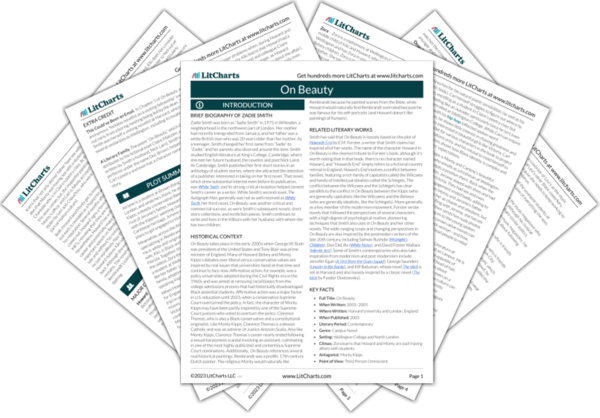AI ToolsNew
Tools to make learning and teaching easier
|
Previous
Kipps and Belsey: Chapter 2
|
On Beauty: Kipps and Belsey: Chapter 3 Summary & Analysis |
Next
Kipps and Belsey: Chapter 4
|


Upgrade to unlock the analysis and theme tracking for all of On BeautyOn Beauty!
Get LitCharts A+